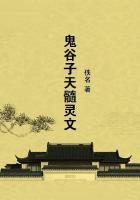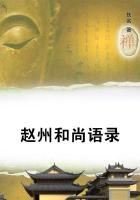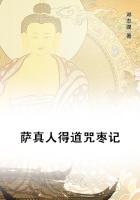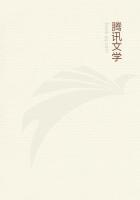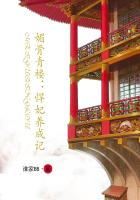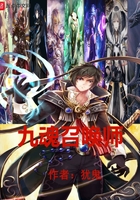Moreover, there is plenty of independent archaeological and other evidence that in the whole thousand years, 2000 to 3000 B.C, the alluvial plain was inhabited by a numerous people, among whom industry, art, and literature had attained a very considerable development. And it can be shown that the physical conditions and the climate of the Euphrates valley, at that time, must have been extremely similar to what they are now.
Thus, once more, we reach the conclusion that, as a question of physical probability, there is no ground for objecting to the reality of Hasisadra's adventure. It would be unreasonable to doubt that such a flood might have happened, and that such a person might have escaped in the way described, any time during the last 5000 years. And if the postulate of loose thinkers in search of scientific "confirmations" of questionable narratives --proof that an event may have happened is evidence that it did happen--is to be accepted, surely Hasisadra's story is "confirmed by modern scientific investigation" beyond all cavil.
However, it may be well to pause before adopting this conclusion, because the original story, of which I have set forth only the broad outlines, contains a great many statements which rest upon just the same foundation as those cited, and yet are hardly likely to meet with general acceptance. The account of the circumstances which led up to the flood, of those under which Hasisadra's adventure was made known to his descendant, of certain remarkable incidents before and after the flood, are inseparably bound up with the details already given. And I am unable to discover any justification for arbitrarily picking out some of these and dubbing them historical verities, while rejecting the rest as legendary fictions. They stand or fall together.
Before proceeding to the consideration of these less satisfactory details, it is needful to remark that Hasisadra's adventure is a mere episode in a cycle of stories of which a personage, whose name is provisionally read "Izdubar," is the centre. The nature of Izdubar hovers vaguely between the heroic and the divine; sometimes he seems a mere man, sometimes approaches so closely to the divinities of fire and of the sun as to be hardly distinguishable from them. As I have already mentioned, the tablet which sets forth Hasisadra's perils is one of twelve; and, since each of these represents a month and bears a story appropriate to the corresponding sign of the Zodiac, great weight must be attached to Sir Henry Rawlinson's suggestion that the epos of Izdubar is a poetical embodiment of solar mythology.
In the earlier books of the epos, the hero, not content with rejecting the proffered love of the Chaldaean Aphrodite, Istar, freely expresses his very low estimate of her character; and it is interesting to observe that, even in this early stage of human experience, men had reached a conception of that law of nature which expresses the inevitable consequences of an imperfect appreciation of feminine charms. The injured goddess makes Izdubar's life a burden to him, until at last, sick in body and sorry in mind, he is driven to seek aid and comfort from his forbears in the world of spirits. So this antitype of Odysseus journeys to the shore of the waters of death, and there takes ship with a Chaldaean Charon, who carries him within hail of his ancestor Hasisadra. That venerable personage not only gives Izdubar instructions how to regain his health, but tells him, somewhat <i>a propos des bottes</i> (after the manner of venerable personages), the long story of his perilous adventure;and how it befell that he, his wife, and his steersman came to dwell among the blessed gods, without passing through the portals of death like ordinary mortals.
According to the full story, the sins of mankind had become grievous; and, at a council of the gods, it was resolved to extirpate the whole race by a great flood. And, once more, let us note the uniformity of human experience. It would appear that, four thousand years ago, the obligations of confidential intercourse about matters of state were sometimes violated--of course from the best of motives. Ea, one of the three chiefs of the Chaldaean Pantheon, the god of justice and of practical wisdom, was also the god of the sea; and, yielding to the temptation to do a friend a good turn, irresistible to kindly seafaring folks of all ranks, he warned Hasisadra of what was coming. When Bel subsequently reproached him for this breach of confidence, Ea defended himself by declaring that he did not tell Hasisadra anything; he only sent him a dream. This was undoubtedly sailing very near the wind; but the attribution of a little benevolent obliquity of conduct to one of the highest of the gods is a trifle compared with the truly Homeric anthropomorphi** which characterises other parts of the epos.
The Chald?an deities are, in truth, extremely human; and, occasionally, the narrator does not scruple to represent them in a manner which is not only inconsistent with our idea of reverence, but is sometimes distinctly humorous.<7> When the storm is at its height, he exhibits them flying in a state of panic to Anu, the god of heaven, and crouching before his portal like frightened dogs. As the smoke of Hasisadra's sacrifice arises, the gods, attracted by the sweet savour, are compared to swarms of flies. I have already remarked that the lady Istar's reputation is torn to shreds; while she and Ea scold Bel handsomely for his ferocity and injustice in destroying the innocent along with the guilty. One is reminded of Here hung up with weighted heels; of misleading dreams sent by Zeus; of Ares howling as he flies from the Trojan battlefield; and of the very questionable dealings of Aphrodite with Helen and Paris.


